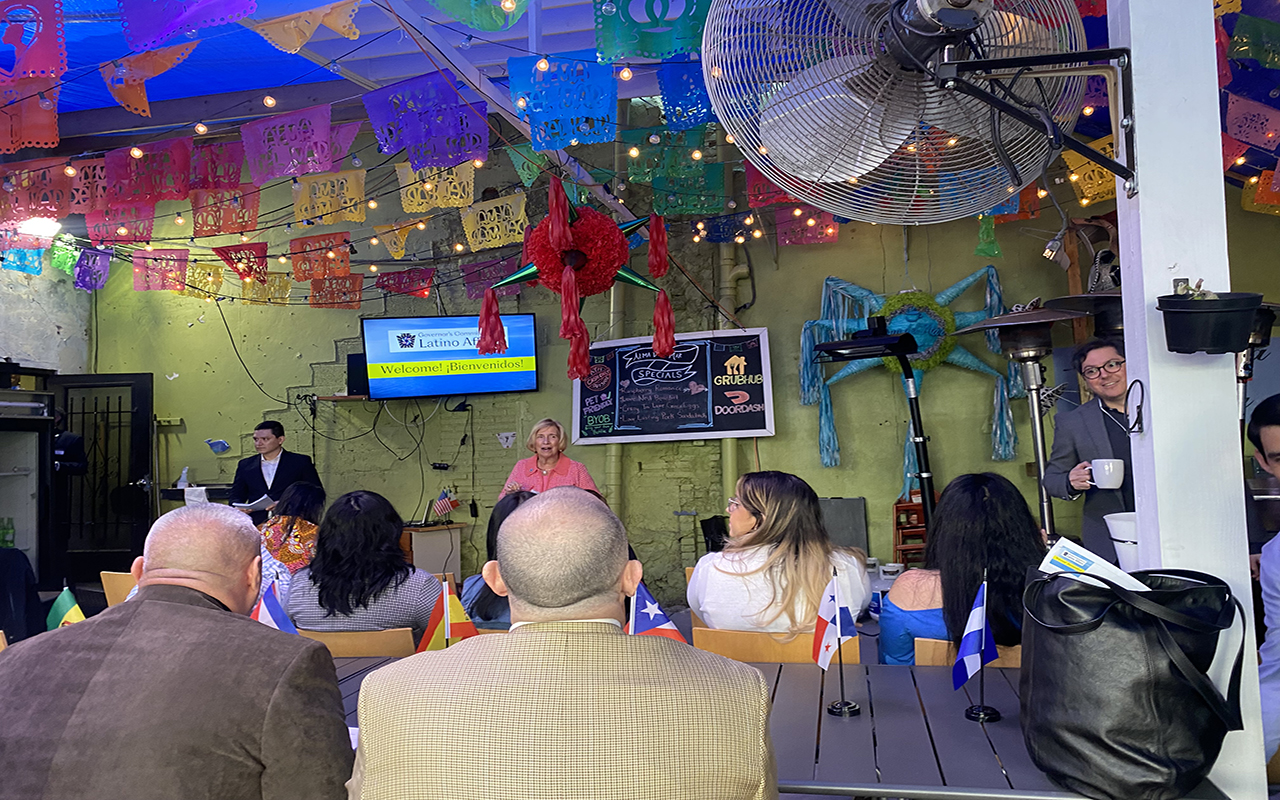
Former goalkeeper Adolfo Rios talks socccer values and CONCACAF controversy
On July 24, Rios visited the Starfinder Foundation, a not-for-profit organization based in the Manayunk section of Philadelphia.
Former El Tri goalkeeper Adolfo Rios surprised Philly youth with a training session during a soccer clinic in anticipation to the Gold Cup Final at Lincoln Financial Field.
AL DÍA News had the chance to talk to the former goalkeeper on the value of soccer in the U.S. for younger generations, and the controversy surrounding the Mexican National Team after advancing to the finals.
A current spokesman for Allstate, official sponsor of the Mexican national team on tour in the U.S., during the Gold Cup, Rios held a series of surprise soccer clinics through different cities.
On July 24, Rios visited the Starfinder Foundation, a not-for-profit organization based in the Manayunk section of Philadelphia, that provides “soccer, educational, and personal development programs to inspire young people from underserved communities to achieve success both on and off the field.”
“Each of the places we have visited with the soccer clinics have been great,” Rios said. “What draws me to the project is the opportunity to spend time with the community. It is a very motivating experience.”
[node:field_slideshow]
According to the former goalkeeper, this initiative is aims to provide equipment and material for young soccer players at low-income schools. “But beyond the idea that these students may or may not become professional players, it is an opportunity to plant a seed so they become better human beings. To stay away from vices and drugs and develop better in the sport,” Rios said.
Through Rios’ leadership, Philly youth learned some coordination exercises to develop their confidence. “I taught them how to throw themselves to the ground, how to protect themselves against very strong shots, and how to implement coordinated movement to avoid injury,” Rios said.
He also talked about the growing popularity of soccer in the United States, citing the victory of the U.S. team at the FIFA Women’s World Cup as a sign of advancement.
“More people fill the stadiums; there are more and more soccer fans who are enjoying soccer in a unique way in the United States. Little by little they are creating a new hybrid player — who has a Latino craftiness, that soccer quality, and American discipline opening the way — as we are seeing, with Latino names in the U.S. National Team,” Rios said.
During his professional career Rios played for Mexico from 1988 to 2003, and was part of several Liga MX clubs including Pumas, Veracruz, Necaxa and Club America from 1985 to 2004.
On Sunday night the Mexican National Team dominated the ball at the final match against Jamaica winning its seventh Gold Cup title with a final score of 3-1. The victory, however, came after a series of controversial penalty kicks which were crucial in helping El Tri advance in the tournament.
“Really in any sport there exists the possibility of a mistake. Not just from a player or a goalkeeper, but from an authority figure such as the referee,” Rios said. “The referee hardly has the option of a replay to change a decision if he believes it was wrong.”
He added that decisions are made in fractions of seconds that can impact or favor a team, “but not a way where there is a premeditated decision to advantage or disadvantage any particular team,” Rios said.
“The Mexican team had to keep working, keep searching for a possibility of victory. The last penalty was not dubious, it was very clear,” Rios said. “It is a matter that affects one of the teams, but this has also happened to Mexico, and has happened to many teams in many sports. That is just part of soccer.”










LEAVE A COMMENT:
Join the discussion! Leave a comment.